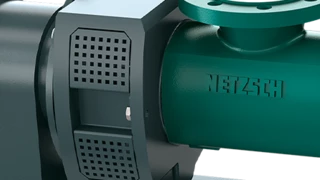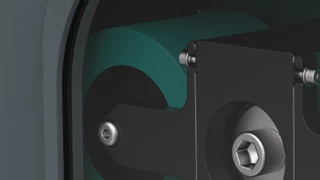NETZSCHicon
Leakage
A leakage, also known as a leak, occurs when there is a tightness in a system. This can be caused, for example, by a hole through which unwanted entry or exit of liquids, gases or solids occurs. Particular attention is paid to preventing leaks in pumping systems.
This is important, especially when the unintentional leakage of pumped media poses potential hazards to people, the environment or the plant. Also, the value of the medium plays a role, as a high value requires special protection. The size of a leak is indicated in the shape of the leakage rate, measured in litres per minute (l/min) or cubic metres per hour (m3/h). The leakage rate depends mainly on two factors: the diameter of the leak and the pressure difference. Causes of leaks can be many, including hose ruptures, broken piping due to overpressure, failure of a flange, or even weld cracking. Abnormalities in measuring pressure and flow rate at different points in the overall system can indicate possible leaks.





